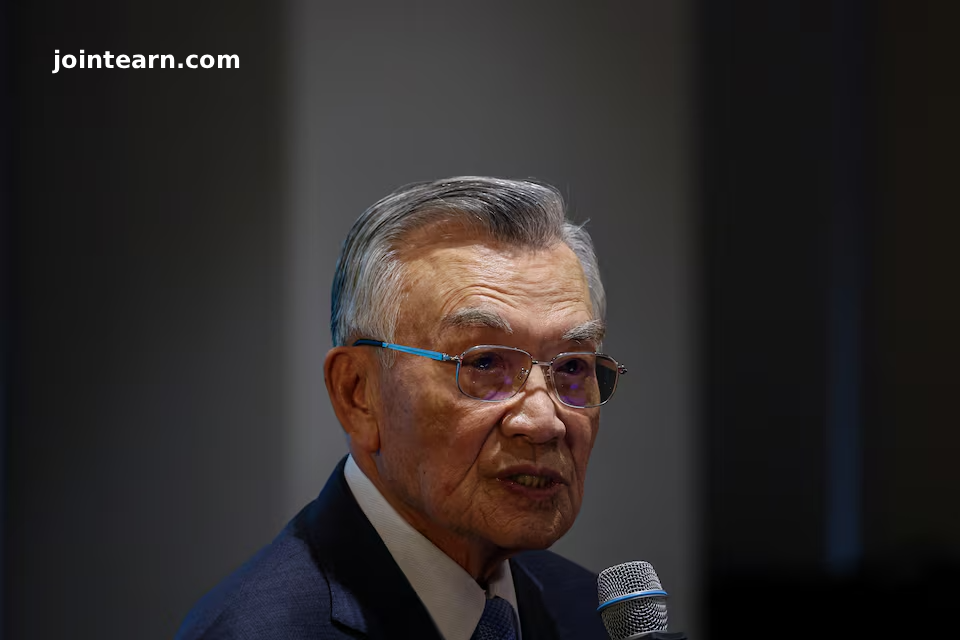
Gyeongju, South Korea – Taiwan’s presence at the 2025 APEC Summit gained significant attention as its representative, Lin Hsin-i, met with U.S. Treasury Secretary Scott Bessent to discuss vital issues surrounding global semiconductor supply chains and technology cooperation. The meeting underscores Taiwan’s strategic role in the global tech industry and its ongoing efforts to ease U.S. tariffs on its exports.
Lin Hsin-i, a former Taiwanese economy minister and now the island’s envoy to the Asia-Pacific Economic Cooperation (APEC) forum, revealed that the 40-minute bilateral meeting was focused primarily on semiconductor technology—a key sector where Taiwan is recognized as a global leader. According to Lin, Secretary Bessent expressed keen interest in understanding Taiwan’s development of its high-tech semiconductor ecosystem, often referred to as the “Silicon Shield” for its geopolitical and economic significance.
“He was really intrigued to hear how we built up our high-tech semiconductor cluster—how it developed and the history behind it,” Lin noted during a media briefing. “We also covered broader areas like supply chain security and technology partnerships.”
Taiwan Seeks Reduction of U.S. Tariffs Amid Strong Bilateral Ties
As it stands, Taiwan faces a 20% tariff on many U.S.-bound goods—excluding semiconductors. Taipei is in active discussions with Washington to lower this tariff burden, hoping to boost trade and foster deeper economic cooperation. The meeting with Bessent signifies an important step in that direction. Though the U.S. Treasury declined to comment immediately, the dialogue reflects both countries’ shared interests in resilient supply chains, particularly as global tensions and trade restrictions heighten risks in technology sectors.
The United States maintains strong, albeit unofficial, ties with Taiwan. While not recognized as a sovereign state by Washington due to the One-China policy, Taiwan remains a vital partner and contributor to the global semiconductor industry, supplying key components to American technology and defense manufacturers.
Diplomatic Dynamics at APEC Highlight Taiwan’s Delicate Position
Although Taiwan’s participation in APEC is limited under the name “Chinese Taipei” to avoid political frictions with Beijing, the island plays a crucial role in discussions on trade, technology, and security. Notably, Lin did not address whether he interacted directly with Chinese President Xi Jinping during the event. At previous gatherings, indirect exchanges, such as a wave or brief acknowledgment, have been the extent of interaction between Taiwan’s representatives and China’s delegation.
The 2025 APEC Summit in Gyeongju was also noteworthy due to the absence of U.S. President Donald Trump at the main meeting, following his earlier summit with Xi. This left Secretary Bessent to lead the American delegation, further elevating Taiwan’s engagement with high-level U.S. officials on strategic matters such as semiconductor advancement and tariff policies.
Looking Ahead: China to Host 2026 APEC in Shenzhen
China is set to host next year’s APEC Summit in the tech-driven city of Shenzhen—a global manufacturing hub well known for robotics, consumer electronics, and electric vehicle production. Taiwan has expressed concerns over security assurances but said China has provided written commitments ensuring safe participation for all members.
Taiwan’s government continues to oppose Beijing’s territorial claims and assert its right to self-determination. With military tensions ongoing and Beijing’s diplomatic pressure intensifying, Taiwan’s participation in multilateral forums like APEC remains critical in securing international recognition and economic partnerships.


Leave a Reply